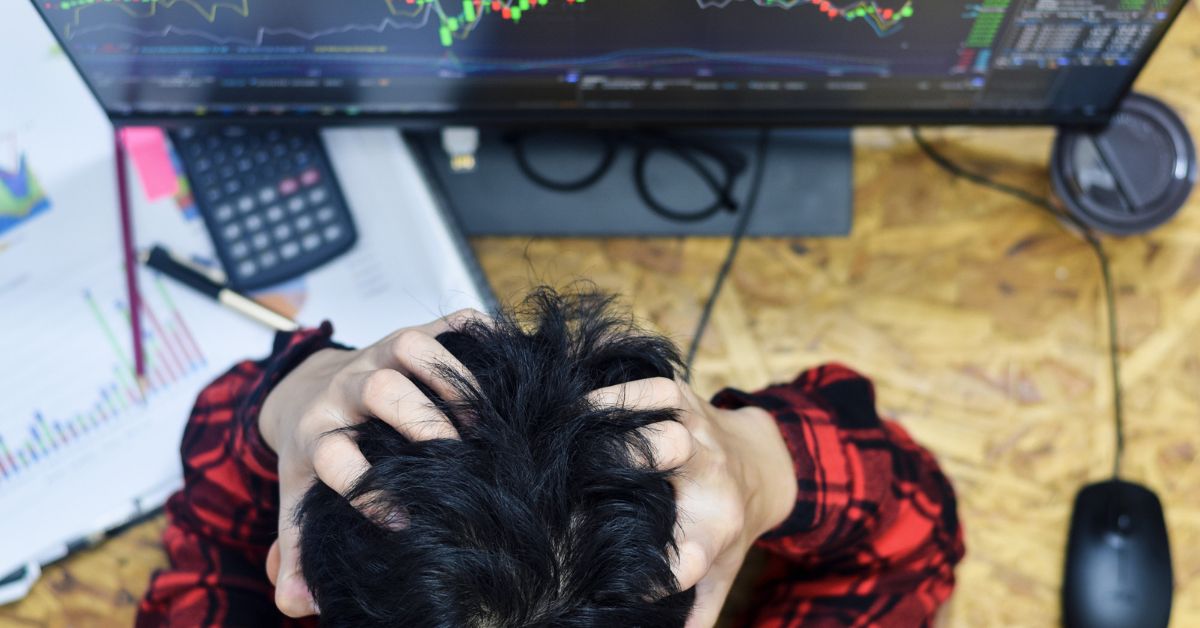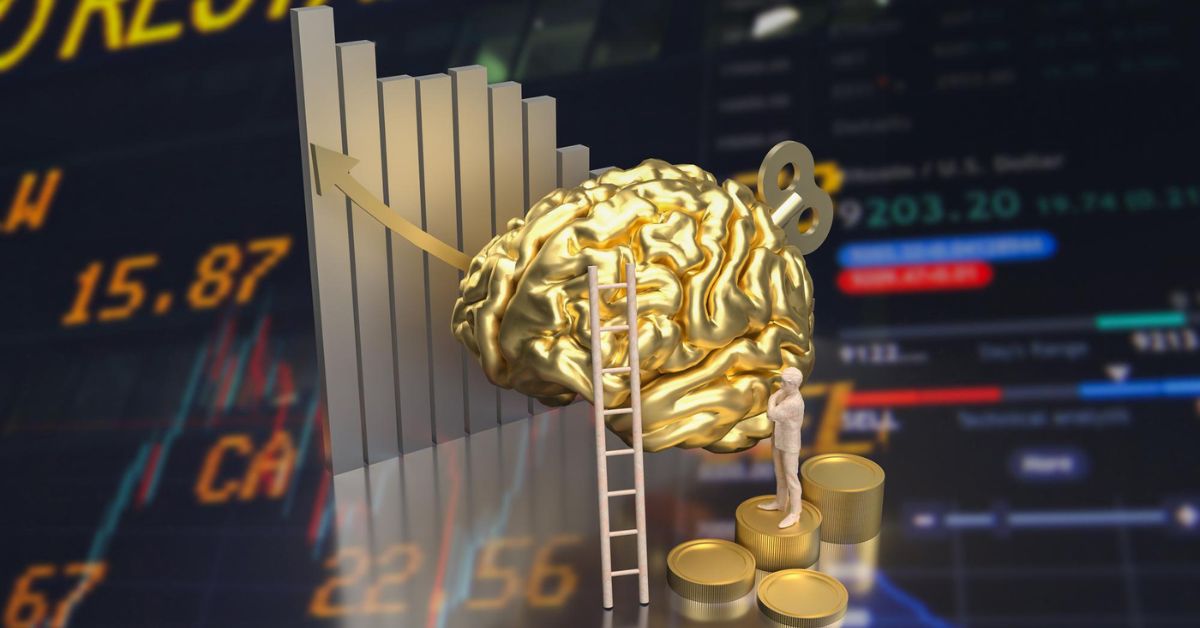Trading success isn’t just about strategies and technical analysis; it’s largely influenced by mindset. Emotions like fear, greed, or impatience can cloud judgment, leading to poor trading decisions. Successful traders prioritize mindset just as much as strategies and technical analysis to stay disciplined under pressure.
Prime XBT is a popular trading platform. It offers tools and resources to help traders maintain composure and stay focused on long-term goals. So, join PrimeXBT today! Use promo code PRIMEOTT to receive a +7% bonus on your deposit.
Learning essential trading psychology rules can also help you build a resilient mindset that prevents emotional trading. These rules focus on managing stress, practicing patience, and developing a disciplined approach.
With strong trading psychology, you can make decisions with clarity, regardless of market conditions. In this guide, we’ll explore effective rules for trading psychology. Let’s dive in.
What are the Key Psychological Challenges in Trading

Psychology plays a crucial role in trading decision-making. Each emotion can impact how traders interpret and react to market changes.
Fear and Greed
Fear of losing money or missing out on gains can cloud judgment. When traders see losses, they may panic-sell, locking in losses. Conversely, greed can cause traders to ignore risk limits, holding trades too long in pursuit of unrealistic gains. Emotions like fear and greed cause up to 70% of trading errors.
Overconfidence and Euphoria
Early success often creates a false sense of security, leading to overconfidence. A winning streak can result in riskier trades, often without proper analysis. This tendency is common among newer traders, indicating that around 60% of them are prone to overconfidence after initial wins.
Impatience and Impulsivity
Waiting for ideal setups requires patience, but traders may act impulsively, entering trades without sufficient analysis. Impatience often stems from the desire to profit quickly, which can lead to poor timing. Impulsive trades can lead to losses, and many traders make hasty decisions due to impatience.
Regret and Revenge Trading
After a loss, traders may feel regret or frustration. This can lead to “revenge trading,” where they aim to quickly regain losses by taking high-risk trades. This approach can lead to further losses, as decisions are driven by emotions rather than logic.
Analysis Paralysis
Analysis paralysis occurs when traders overthink their decisions, resulting in missed opportunities. The abundance of information can overwhelm traders, making it difficult to make timely decisions. Research indicates that nearly 50% of traders experience analysis paralysis, especially during volatile market conditions.
Loss Aversion
Loss aversion refers to the tendency to prefer avoiding losses over acquiring equivalent gains. Traders often fear losses more than they value gains, which can lead to overly cautious behavior. Traders usually hold losing positions too long in hopes of recovering from losses due to anxiety.
Lack of Discipline
A lack of discipline can prevent traders from following their strategies consistently. Emotional reactions can lead to deviations from a well-planned trading strategy. Nearly 65% of traders struggle with maintaining discipline, especially in volatile markets.
Each of these psychological challenges can derail a trader’s success. A clear, disciplined mindset is essential to mitigate these impacts, as they influence both novice and experienced traders alike.
Essential Trading Psychology Rules

Managing trading psychology is crucial for success. Traders often face emotional challenges that can affect their decisions. Here are some essential rules to help maintain a balanced mindset.
Rule 1: Stick to a Trading Plan
Having a predefined trading plan is vital. It serves as a roadmap, guiding your decisions and actions. A clear plan reduces emotional trading and keeps you focused on your strategy. Traders with a solid plan are 50% more likely to succeed.
Your plan should include entry and exit points, risk management strategies, and guidelines for different market conditions. This structure helps you remain disciplined, especially in volatile markets.
Rule 2: Set Realistic Goals and Expectations
Setting realistic goals is important for maintaining a healthy mindset. Based on your trading strategy, aim for achievable profit targets. Make sure you know what you’re getting into and prepare for losses.
Unrealistic expectations can lead to frustration and emotional decision-making. Traders who set clear, achievable goals are more likely to experience consistent success. This practice helps keep your focus on long-term growth rather than short-term wins.
Rule 3: Practice Emotional Control Techniques
Emotional control is essential for effective trading. Techniques like meditation, deep breathing, and mental exercises can help you stay calm. Research shows that practicing mindfulness can reduce stress and improve decision-making.
Regularly taking breaks to clear your mind can also help maintain focus. Consider creating a routine that includes these techniques to help you manage your emotions during trading sessions. This proactive approach enhances your ability to respond rationally to market changes.
Rule 4: Learn from Losses and Mistakes
Every trader experiences losses; it’s a natural part of the process. Learning from each trade, especially the losing ones, is crucial. Analyze what went wrong and how you can improve in the future.
Avoid dwelling excessively on mistakes, as this can lead to negative emotions. Instead, view losses as valuable learning experiences that contribute to your growth. Research indicates that traders who reflect on their mistakes tend to improve their performance over time.
Rule 5: Limit Trading Frequency
Sometimes, less is more. Trading too frequently can lead to burnout and emotional exhaustion. Set limits on how often you trade, focusing instead on quality over quantity. This approach allows you to take the time needed to analyze market conditions carefully.
Reducing trading frequency can improve overall performance by promoting better decision-making and reducing impulsive trades.
Cognitive Biases Affecting Traders
Cognitive biases can significantly impact trading decisions. Making better decisions and avoiding costly mistakes is easier with an understanding of these biases. Here are some common mental biases that traders often encounter:
Confirmation Bias
Confirmation bias occurs when traders focus on information that supports their existing beliefs. For instance, if a trader believes a stock will rise, they may only look for positive news about that stock.
This selective information gathering can lead to missed opportunities and flawed decision-making. A study showed that this bias can prevent traders from seeing the full market picture and considering potential risks.
Anchoring and Hindsight Biases
Anchoring bias is the tendency to rely too heavily on the first piece of information encountered. For example, if a trader sees a stock priced at $100, they may anchor their future expectations to that price.
Hindsight bias occurs when traders believe they predicted an event after it has occurred. This can lead to overconfidence, where traders think they can predict market movements. Both biases can hinder adaptability and lead to suboptimal trading strategies.
Sunk Cost Fallacy

The sunk cost fallacy occurs when traders continue to invest in a losing trade because of previous investments. For instance, if a trader buys a stock at $50 and it drops to $30, they might hold onto it, hoping to recover their losses.
This behavior can lead to further financial losses as traders fail to make objective decisions based on current market conditions. Recognizing this misconception is crucial for trading success.
Herd Instinct
Herd instinct refers to the tendency to follow the crowd instead of making independent decisions. In volatile markets, traders may base their choices on group behavior rather than sound analysis, leading to significant losses.
Traders may buy and sell assets just because others are. This behavior can lead to significant losses, especially in volatile markets. A notable example is during market bubbles, where many traders jump in late, hoping to profit from rising prices. Following the herd can lead to poor risk management and irrational decision-making.
Developing a Growth Mindset in Trading
A growth mindset is the belief that abilities can be developed through dedication and hard work. This perspective is essential for traders, as it allows them to adapt to ever-changing market conditions.
Traders with a growth mindset view challenges as opportunities to learn. They understand that setbacks can lead to improvement. This attitude encourages continuous learning, which is vital in the trading world. Research shows that individuals who embrace a growth mindset are more resilient. They are better equipped to handle the emotional ups and downs of trading.
Moreover, adopting a growth mindset helps traders adjust their strategies over time. They can analyze what works and what doesn’t, refining their approach and increasing their chances of success. In a dynamic market, flexibility is key.
Techniques for Building Discipline and Focus
Discipline is essential for successful trading. It helps traders stick to their strategies and avoid emotional decisions. Here are some techniques that can aid in developing discipline and focus.
Journaling and Self-Reflection
Keeping a trading journal is a powerful tool. Documenting trades allows traders to analyze their actions and decisions. By writing down their thoughts and emotions, traders can identify patterns and weaknesses. This reflection helps them learn from mistakes and avoid repeating them.
Setting Limits on Trading Activity
Knowing when to take breaks is crucial for maintaining focus. Setting limits on trading activity helps prevent burnout. Traders should establish a schedule that includes breaks to recharge. Research indicates that regular breaks can improve concentration and decision-making abilities. Taking a break can help traders refocus and clear their minds.
Backtesting Strategies
Backtesting is an essential technique for validating trading strategies. Traders can use historical data to assess how a strategy would have performed in the past. This process reduces emotional decision-making by providing a factual basis for trades.
Building Connections: The Power of Trading Communities

Keeping connections with trading communities can greatly boost your trading interest.
Benefits of Joining Trading Communities and Forums
Joining trading communities and forums can greatly benefit traders. These platforms allow traders to share experiences and learn from each other. Engaging with peers helps build motivation and keeps traders accountable.
Research shows that traders who participate in communities report higher satisfaction and improved performance. These interactions can provide valuable insights into market trends and trading strategies.
Mentorship and Accountability
Having a mentor can be invaluable in trading. A mentor provides guidance, helping traders navigate challenging market conditions. This relationship fosters accountability, encouraging traders to stick to their plans.
Studies indicate that mentorship can improve trading discipline. Learning from experienced traders can help you avoid common pitfalls and develop better strategies.
Peer Support and Knowledge Sharing
Discussing strategies with like-minded traders enhances knowledge. It allows traders to analyze different approaches and refine their techniques. This collaborative environment promotes growth and fosters confidence.
Traders often find new perspectives on problems they face. Sharing knowledge creates a supportive network that can help during tough trading periods.
Practicing Self-Care for Mental Resilience
Maintaining good physical health and mental well-being is crucial for traders. Stress can negatively impact decision-making and overall performance. Prioritizing self-care helps manage this stress effectively.
Regular exercise is one of the best ways to boost mental health. It increases endorphins, improving mood and focus. Additionally, getting adequate rest is vital. Sleep helps the brain recover and process information. Without it, traders may find it harder to think clearly and make rational decisions.
Establishing a healthy work-life balance is also essential. Taking breaks during trading sessions can reduce burnout and maintain energy levels. Engaging in hobbies outside of trading allows for relaxation and creativity, which can enhance trading performance.
FAQs
What is the psychology of a good trader?
The psychology of a good trader is about staying calm, disciplined, and focused on long-term goals. Effective traders manage emotions, avoiding impulsive actions driven by fear or greed. They stick to their strategies, learn from mistakes, and keep a balanced mindset to handle market fluctuations.
Read More: How Do You Deal With Uncertainty In Trading
Wrap Up
Mastering trading psychology is essential for long-term success. Understanding your emotions can help you mitigate risks and make better decisions. If you’re tired of losing money due to panic selling, FOMO, overtrading, and bag holding, consider using the Vestinda trading app.
It offers automated crypto trading strategies that can help you eliminate emotional decision-making. Data-driven strategies can also help you make better trading decisions. Embrace these trading psychology rules, and let Vestinda guide you toward smarter trading decisions. Take control of your trading journey today!



